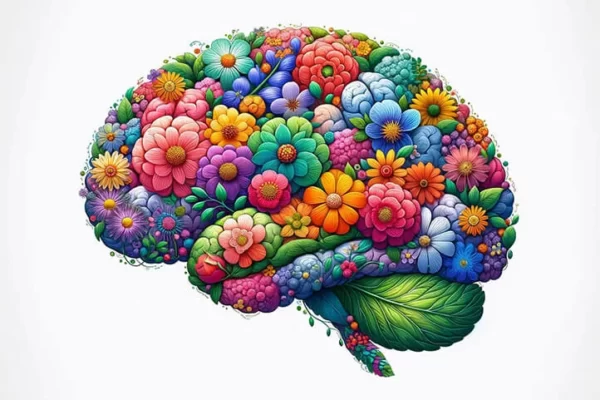Addictive, or dependent, behavior represents a compulsive need to engage in certain actions despite their negative consequences for physical and mental health, social life, and well-being. This complex phenomenon can take various forms, from chemical dependencies such as alcoholism and drug addiction to non-chemical (behavioral) addictions, including gambling addiction, internet addiction, workaholism, and shopping addiction.
Understanding the nature of addictive behavior and its causes is critical for developing effective prevention and treatment strategies. This not only helps people who are already struggling with addiction but also prevents its development in those at risk. Addictions can have devastating consequences for all aspects of a person’s life, so timely detection and treatment are extremely important.

Types of Addictive Behavior
Addictive behavior can take many forms, from chemical dependencies to non-chemical (behavioral) disorders. Each type of addiction has its own unique characteristics and consequences, but they all share a common feature—an obsessive need for certain activities or substance use despite the negative consequences. Understanding the various types of addictions is crucial for effective prevention, diagnosis, and treatment.
Chemical addictions are related to the use of psychoactive substances that affect the nervous system and cause changes in mental state. These substances can be either legal, such as alcohol or certain medications, or illegal, such as heroin, cocaine, or methamphetamine. However, regardless of their legal status, all of them have the potential to cause addiction and inflict serious harm on physical and mental health.
Non-chemical, or behavioral, addictions are not related to substance use but rather to compulsive involvement in certain activities or behaviors. These disorders can affect almost any area of life, from gambling and internet addiction to workaholism and shopping addiction. Despite the absence of a chemical component, they can also have devastating effects on mental health, social life, and a person’s well-being.
Chemical Addictions
Chemical addictions are associated with the use of psychoactive substances that affect the nervous system and cause changes in mental state.
- Alcoholism is one of the most common forms of chemical dependency. It is characterized by a constant need to consume alcoholic beverages despite negative consequences for health, social, and professional life. Prolonged alcohol abuse can lead to serious problems such as liver disease, cardiovascular disease, nervous system damage, and cognitive impairment.
- Drug addiction refers to dependence on narcotics such as heroin, cocaine, amphetamines, and other illicit substances. Drug use can cause strong physical and psychological dependence, as well as negatively impact a person’s health and well-being. Additionally, drug addiction is often associated with criminal activity and legal consequences.
- Medication dependence occurs with the abuse of prescribed or illegally obtained medications. This can include addiction to opioid analgesics, tranquilizers, stimulants, and other drugs. Medication dependence can be just as dangerous as drug addiction and often requires medical intervention and rehabilitation.
Non-chemical (Behavioral) Addictions
Non-chemical addictions are not related to the use of psychoactive substances but rather to compulsive involvement in certain activities or behaviors.
- Gambling addiction, or pathological gambling, is one of the most common forms of non-chemical addictions. It is characterized by an obsessive need to participate in gambling activities such as casinos, sports betting, or online games, even when it leads to serious financial losses or problems in personal life. Gambling addiction can destroy families, careers, and financial well-being.
- Internet addiction manifests as excessive and obsessive use of the internet, social networks, online games, and other online resources. People suffering from internet addiction may spend most of their time in the virtual world, neglecting work, studies, personal relationships, and other important aspects of life.
- Workaholism is the obsessive need for work, which becomes the top priority in life and negatively affects other aspects of it. Workaholics often work beyond the required time, neglecting personal life, family, and rest. This can lead to emotional burnout, health problems, and the destruction of social connections.
- Shopping addiction, or oniomania, is the compulsive need to make purchases despite the absence of real necessity or financial capacity. People suffering from this addiction experience strong emotional excitement and satisfaction from the shopping process, which can lead to serious financial problems and debt.
Other Forms of Non-chemical Addictions
In addition to the aforementioned, there are other forms of non-chemical addictions, such as addiction to fitness, dancing, religious activities, plastic surgery, and many others. The common feature of all these addictions is the obsessive and excessive involvement in certain activities, which begins to negatively affect other areas of a person’s life.
Common signs of addictive behavior may vary depending on the specific type of addiction, but the general traits are:
- Loss of control over behavior or consumption.
- Continuation of the activity despite negative consequences.
- Denial of the problem and justification of one’s behavior.
- Development of tolerance (the need to increase the dose or intensity to achieve the desired effect).
- Appearance of withdrawal symptoms when the activity or substance use is stopped.

Causes of Addictive Behavior
Addictive behavior rarely has a single isolated cause. Rather, it arises from a complex interaction of biological, psychological, and social factors. Understanding these causes is crucial for developing effective prevention and treatment strategies for addictions.
At the biological level, genetic predisposition, metabolic disorders, and brain activity features can increase the risk of developing addictive behavior. Research has shown that certain genes and neurochemical processes in the brain influence susceptibility to addictions and the ability to control impulsive behavior.
Psychological factors such as low self-esteem, difficulty managing emotions, stress resilience, and impulsivity also play an important role in the development of addictions. People may turn to substance use or compulsive behaviors as a way to cope with negative emotions, avoid stress, or seek thrills.
Social factors, including family environment, peer influence, availability of addictive objects, cultural norms, and traumatic experiences, can also contribute to the development of addictive behavior. People raised in disadvantaged environments or exposed to negative influences are more likely to resort to addictions as a psychological defense mechanism.
Biological Factors
- Genetic predisposition: Studies show that some people have a genetic predisposition to developing addictions due to the functioning of the brain’s neurotransmitter systems responsible for reward and addiction formation. For example, certain variants of genes related to the dopamine system can increase susceptibility to substance dependence or specific forms of behavioral disorders.
- Metabolic disorders: Certain metabolic disorders, such as deficiencies in B vitamins, magnesium, zinc, or other micronutrients, can increase the risk of developing addictions. These disorders can affect the functioning of the nervous system and contribute to the formation of compulsive behavior.
- Brain activity features: Differences in the structure and functioning of brain areas responsible for reward, motivation, decision-making, and impulse control can affect susceptibility to addictive behavior. Research has shown that people with addictions exhibit changes in the activity of specific brain areas associated with these processes.
Psychological Factors
- Low self-esteem: People with low self-esteem and negative self-perception often feel the need to seek ways to assert themselves or suppress negative emotions. Addictive behavior can become a form of compensation or a way to cope with internal discomfort, which, in turn, reinforces the addiction.
- Difficulty managing emotions: The inability to effectively cope with stress, anxiety, depression, or other intense emotions can lead to the development of addictions as a means of psychological relief. People may resort to substance use or compulsive behaviors to temporarily escape negative emotional states.
- Stress resilience: Low stress resilience and the inability to cope with difficult life situations can increase the risk of addictive behavior. In stressful conditions, addictions can become a form of adaptation, which, however, only exacerbates the problem in the long term.
- Impulsivity and thrill-seeking: Some people have a higher level of impulsivity and a need for thrill-seeking, which increases the risk of developing addictive behavior. They may seek intense sensations, losing control over their impulses, making them more vulnerable to forming addictions.
Social Factors
- Family environment: The presence of addictions in the family, lack of proper parental control, or emotional support can contribute to the development of addictive behavior in children and adolescents. Children raised in families where addictions are the norm are highly likely to follow this path.
- Peer influence: Pressure from friends or social groups where the use of psychoactive substances or other forms of addictive behavior is normalized increases the risk of developing addictions, especially in adolescence. The desire to be part of a group can push people toward developing harmful habits.
- Availability of addictive objects: The easy availability of alcohol, drugs, gambling, or other addictive objects promotes the formation of addictive behavior. If a person is in constant contact with the object of their addiction, it becomes much more difficult to control their behavior.
- Cultural and social norms: In some cultures or social groups, norms promote the development of certain forms of addictive behavior. For example, excessive alcohol consumption or workaholism may be perceived as acceptable or even positive phenomena in certain social circles.
- Traumatic experiences and stress: Experiences of violence, abuse, or other psychological trauma, as well as chronic stress, increase the risk of developing addictions. People may resort to the use of psychoactive substances or compulsive behavior as a way to cope with the consequences of traumatic experiences or to avoid negative emotions.
It is important to understand that the causes of addictive behavior result from a complex interaction of biological, psychological, and social factors. Each individual may have a unique combination of risk factors that contribute to the development of addiction.

Consequences of Addictive Behavior
Addictive behavior can have devastating consequences, affecting virtually all areas of a person’s life. From physical and mental health to social relationships and financial well-being, addictions cause serious damage and undermine the quality of life. Understanding these consequences is a key motivator in overcoming addictions and preventing their development.
Physical Consequences
On a physical level, the consequences of addictive behavior can be catastrophic. The use of psychoactive substances such as alcohol and drugs often leads to diseases of the heart, liver, lungs, and other vital organs. In addition, there is an increased risk of contracting infectious diseases transmitted through blood or unprotected sexual contact. Injuries and accidents are also common side effects of addictions.
Health Problems
Addictions can lead to various physical diseases that threaten life and health, such as:
- Liver diseases (cirrhosis, hepatitis) and digestive system problems due to alcohol abuse.
- Cardiovascular diseases such as heart attacks and strokes associated with drug use or excessive alcohol consumption.
- Respiratory problems such as chronic bronchitis and lung cancer caused by smoking.
- Nervous system damage and cognitive impairments related to psychoactive substance use.
- Exhaustion and nutritional disorders, characteristic of some forms of non-chemical addictions, such as workaholism or compulsive overeating.
Some types of addictive behavior, such as intravenous drug use or unprotected sex associated with addictions, increase the risk of contracting HIV, hepatitis, and other infectious diseases transmitted through blood or sexually.
Substance abuse or excessive engagement in certain activities can also increase the risk of injuries and accidents. For example, drunk driving, falls, burns, and other injuries can result from addictive behavior.
Psychological Consequences
The psychological consequences of addictive behavior are equally destructive. Depression, anxiety, psychosis, and cognitive impairments can severely lower the quality of life and lead to suicidal thoughts or attempts. The impairment of decision-making and impulse control creates a vicious cycle that exacerbates the addiction and its consequences.
- Depression and Anxiety. Addictions are often accompanied by comorbid mental disorders such as depression and anxiety disorders. Substance use can exacerbate the symptoms of these disorders or even provoke their development. Moreover, the addictions themselves can cause feelings of guilt, shame, and low self-esteem, contributing to depression.
- Cognitive Function Impairments. Long-term use of psychoactive substances or excessive involvement in certain activities can negatively affect a person’s cognitive functions, such as memory, attention, learning ability, and decision-making. Some narcotic substances, such as methamphetamines or cocaine, can cause severe brain damage and lead to persistent cognitive impairments.
- Suicidal Thoughts and Attempts. People suffering from addictions often experience hopelessness, despair, and a loss of life meaning. This can lead to suicidal thoughts or attempts, especially when addiction is combined with depression or other mental disorders.
- Psychosis and Hallucinations. Some psychoactive substances, such as amphetamine-type stimulants or hallucinogens, can cause psychotic episodes, hallucinations, and delusions. These states can be extremely dangerous for both the person and those around them.
Social Consequences
The social consequences of addiction should not be overlooked. The destruction of family and friendships, problems at work or school, financial difficulties, and even legal issues can all result from addictive behavior. Stigmatization and social isolation often exacerbate the problem, creating additional barriers to recovery.
- Relationship Problems. Addictive behavior can seriously affect relationships with family, friends, and partners, causing conflicts, distrust, and isolation. Addiction often becomes the central issue in a person’s life, pushing aside all other aspects, including close relationships.
- Work/School Problems. Addictions can negatively impact work performance, academic success, and even lead to job loss or expulsion from school. Absenteeism, inattention, low motivation, and cognitive impairments—all of these can be consequences of addictive behavior and hinder normal activities in professional or educational spheres.
- Financial Difficulties. Many forms of addictive behavior require significant financial resources, leading to debt, financial problems, and even bankruptcy. For example, expenses for alcohol, drugs, gambling, or compulsive shopping can quickly drain a dependent person’s budget.
- Legal Consequences. Some types of addictions, such as drug use or gambling, can lead to criminal liability and imprisonment. Additionally, committing crimes related to obtaining funds to satisfy the addiction (theft, fraud, etc.) also has serious legal consequences.
- Stigmatization and Social Isolation. Unfortunately, people suffering from addictions often face stigmatization and social isolation. Society frequently treats them with prejudice and judgment, which only exacerbates their problems and complicates the recovery process.
As you can see, addictive behavior can cause serious damage to virtually all areas of a person’s life. That is why it is extremely important to recognize the signs of addiction in a timely manner and take the necessary steps to overcome it.

Prevention of Addictive Behavior
Preventing addictive behavior is crucial for reducing the prevalence of addictions and their consequences. It should start from an early age and cover various aspects, such as information dissemination, healthy habit formation, life skills development, and creating a supportive environment. Limiting access to psychoactive substances and regulating potentially addictive activities also play an important role in prevention.
Early Prevention
- Conducting information campaigns and educational programs aimed at raising awareness of the risks and consequences of psychoactive substance use and other forms of addictive behavior.
- Developing healthy habits and stress-coping skills in children and adolescents through school programs and family upbringing.
- Promoting critical thinking and the ability to resist peer pressure and social norms that encourage addictive behavior.
Life Skills Development and Creating a Supportive Environment
Teaching effective stress management, emotion regulation, and decision-making strategies can reduce the risk of developing addictions. Programs aimed at developing these life skills should be available to people of all ages and social groups.
Providing access to healthy leisure activities, sports, creative endeavors, and supportive social networks can distract people from developing addictions. Creating positive alternatives for free time, especially for youth, fosters the development of a healthy lifestyle.
Restricting Availability and Working with At-Risk Groups
Limiting access to psychoactive substances such as alcohol and drugs, as well as regulating gambling and other potentially addictive activities through legislation and law enforcement, can reduce the risk of developing addictions.
Identifying and working with high-risk groups for addiction development, such as people with mental disorders, those who have experienced psychological trauma, or have a genetic predisposition, is an important part of prevention. Special support and monitoring programs are needed for these groups.

Treatment of Addictive Behavior
For those already facing addiction, various treatment methods are available to help overcome addictive behavior. Psychotherapy, rehabilitation programs, medication, and mutual help groups are effective tools in combating addictions. However, it is important to understand that overcoming addictions is a complex and lengthy process that requires constant effort, motivation, and support.
Psychotherapy
- Various types of psychotherapy, such as cognitive-behavioral therapy, motivational interviewing, acceptance and commitment therapy, as well as family and group therapy, help in overcoming addictions and developing healthy behavioral patterns.
- Cognitive-behavioral therapy helps identify and change dysfunctional thoughts and behavioral patterns contributing to addictive behavior.
- Motivational interviewing aims to enhance intrinsic motivation for change and overcome doubts about treatment.
- Acceptance and commitment therapy teaches accepting negative emotions and thoughts without avoiding them and taking responsibility for actions.
Rehabilitation Programs
Inpatient and outpatient rehabilitation programs offer a comprehensive approach to treatment, including individual and group therapy, educational programs, stress management skills development, and other types of support. These programs provide a structured and safe environment for recovery.
Medication Therapy
In some cases, medications may be prescribed to alleviate withdrawal symptoms and treat comorbid disorders such as depression or anxiety. For example, opioid addiction treatment may involve replacement therapy with methadone or buprenorphine.
Mutual Help Programs
Mutual help groups such as Alcoholics Anonymous, Narcotics Anonymous, or Gamblers Anonymous can provide important social support and motivation to maintain sobriety and abstain from addictive behavior. Interaction with people who have overcome similar problems is an invaluable experience in the recovery process.

Addictive Behavior and Social Support
Social support plays a crucial role in overcoming addictions and maintaining sustained recovery. Loneliness and isolation often worsen the problem of addictive behavior, while a strong support system can be an important factor in the success of the recovery process.
Family and Loved Ones
Family and close friends are one of the key sources of social support for those struggling with addictions. Creating a safe and understanding environment free from judgment can significantly increase the chances of success in the recovery process. Family members should be involved in treatment and become part of the support system, helping their loved one overcome difficulties.
Mutual Help Communities
In addition to family, mutual help communities and support groups also play a significant role in the recovery process. Interaction with people who have gone through similar challenges helps avoid loneliness and isolation, as well as receive valuable advice and strategies for overcoming addiction. Participation in such communities can become a source of motivation and inspiration to return to a normal life.
Professional Help
Regular psychological consultations and support from specialists in the field of addictions help maintain stable recovery. Psychologists, social workers, and other professionals can provide the necessary resources and strategies to overcome difficulties.
Social Reintegration
Successful social reintegration, including career recovery, education, or other aspects of normal life, can significantly reduce the risk of relapses and promote the maintenance of sobriety or abstention from addictive behavior. Creating a positive social environment and achieving stability in various areas of life are important components of the recovery process.

Conclusion
Addictive behavior represents a serious problem that can cause significant damage to physical and mental health, social life, and well-being. Understanding the causes and consequences of addictions is critical to developing effective prevention and treatment strategies.
Early prevention, including education, healthy habits and life skills, can significantly reduce the risk of developing addictive behavior. For those who have already experienced addiction, various treatment methods are available, such as psychotherapy, rehabilitation programs and drug therapy.
However, it is important to remember that overcoming addictions is a complex and long-term process that requires constant effort, motivation and support. Social support, participation in mutual aid communities and professional help are invaluable resources on the road to recovery.
Responsibility for our health and well-being lies with each of us. Awareness of the risks of addictive behavior and timely seeking help allow you to return to a full and healthy lifestyle.




